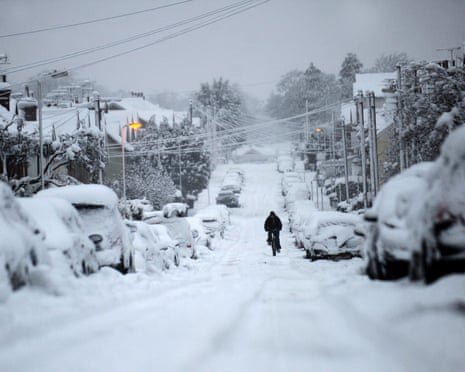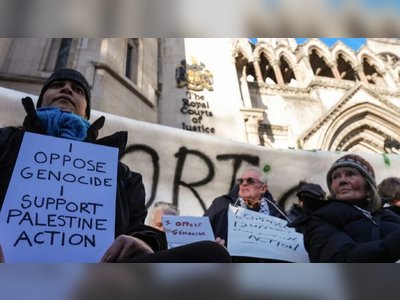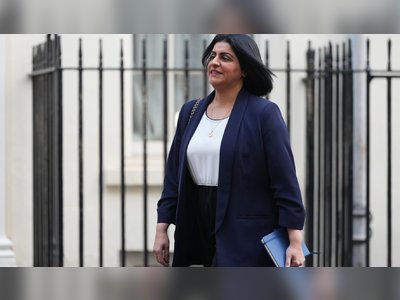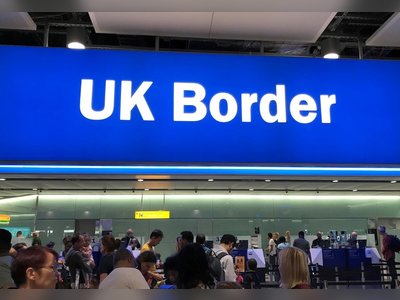
UK Scientists Warn of Looming Climate-Driven Threats to Economy, Security and Public Health
Over 1,000 leaders briefed in Westminster as experts call for urgent adaptation and resilient national strategy
More than a thousand corporate executives, civil servants and civic leaders gathered in Westminster on Thursday for what organisers described as the UK’s first national “climate emergency briefing”, where leading scientists warned that climate breakdown now poses a severe threat to the country’s economy, public health, food systems and national security.
The event was convened to counter growing climate misinformation and to urge coordinated, immediate action.
Speakers painted a stark picture.
Professor Kevin Anderson — a veteran climate-change scientist — argued that the UK faces a stark choice: either commit now to deep, rapid and equitable decarbonisation, or endure a “revolutionary-style” breakdown with chaotic and possibly violent social and economic disruption.
Biodiversity expert Nathalie Seddon warned that the country’s living ecosystems — long seen as buffers against environmental shocks — are themselves collapsing.
“This is not a trade-off between economy and environment,” she said.
“The economy is embedded within the environment — and the health of our nation depends on the living systems that sustain us.”
Professor Tim Lenton of the Global Systems Institute cautioned that catastrophic tipping points, such as the collapse of the Atlantic Meridional Overturning Circulation (AMOC), remain a looming risk.
He warned that such a collapse could plunge the UK into winters reaching –20 °C even as summers continue to grow hotter, while undermining domestic food production and making the country entirely reliant on imports.
Contributions also came from outside academia.
Veteran military leader Richard Nugee declared that the national focus on traditional security threats like Russia obscures what he described as a far graver, insidious and long-term danger: climate change.
He argued that failing to reinforce infrastructure and build climate resilience would leave the UK exposed to extreme weather, food insecurity and even exploitation by hostile actors.
Cultural figures echoed the urgency.
Actor Mark Rylance, who attended the briefing, cast the climate crisis as deeply linked to inequality, calling it a “collective addiction” enabled by wealth and power and urging the affluent to act responsibly.
The event underscored a growing consensus among scientists, economists and security analysts that climate change should be treated not only as an environmental issue — but as a systemic threat to national stability, governance, economic viability and public welfare.
Calls were made for dramatic reductions in greenhouse-gas emissions, major investments in adaptation, and integration of climate risk into national security planning.
The briefing concluded with a clear demand: if the UK fails to act now, the social, economic and security costs could be unmanageable.
The alarm raised by this gathering adds fresh urgency to ongoing debates over climate strategy in Britain — at a moment when experts say time is running out to avoid irreversible damage to nature, society and the economy.
The event was convened to counter growing climate misinformation and to urge coordinated, immediate action.
Speakers painted a stark picture.
Professor Kevin Anderson — a veteran climate-change scientist — argued that the UK faces a stark choice: either commit now to deep, rapid and equitable decarbonisation, or endure a “revolutionary-style” breakdown with chaotic and possibly violent social and economic disruption.
Biodiversity expert Nathalie Seddon warned that the country’s living ecosystems — long seen as buffers against environmental shocks — are themselves collapsing.
“This is not a trade-off between economy and environment,” she said.
“The economy is embedded within the environment — and the health of our nation depends on the living systems that sustain us.”
Professor Tim Lenton of the Global Systems Institute cautioned that catastrophic tipping points, such as the collapse of the Atlantic Meridional Overturning Circulation (AMOC), remain a looming risk.
He warned that such a collapse could plunge the UK into winters reaching –20 °C even as summers continue to grow hotter, while undermining domestic food production and making the country entirely reliant on imports.
Contributions also came from outside academia.
Veteran military leader Richard Nugee declared that the national focus on traditional security threats like Russia obscures what he described as a far graver, insidious and long-term danger: climate change.
He argued that failing to reinforce infrastructure and build climate resilience would leave the UK exposed to extreme weather, food insecurity and even exploitation by hostile actors.
Cultural figures echoed the urgency.
Actor Mark Rylance, who attended the briefing, cast the climate crisis as deeply linked to inequality, calling it a “collective addiction” enabled by wealth and power and urging the affluent to act responsibly.
The event underscored a growing consensus among scientists, economists and security analysts that climate change should be treated not only as an environmental issue — but as a systemic threat to national stability, governance, economic viability and public welfare.
Calls were made for dramatic reductions in greenhouse-gas emissions, major investments in adaptation, and integration of climate risk into national security planning.
The briefing concluded with a clear demand: if the UK fails to act now, the social, economic and security costs could be unmanageable.
The alarm raised by this gathering adds fresh urgency to ongoing debates over climate strategy in Britain — at a moment when experts say time is running out to avoid irreversible damage to nature, society and the economy.









